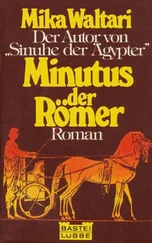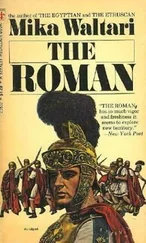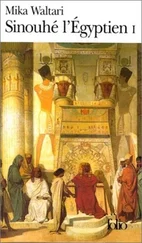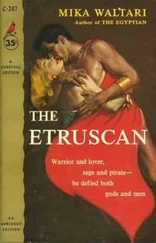“That’s no rumor,” I said innocently. “It’s true, for what arrfiy would make the arduous march to Persia merely to protect the life and property of the inhabitants? But such talk is absurd. The Sultan has no intention of attacking Persia. He is secretly equipping a new army to march again on Vienna and the German states.”
But the wine had gone to Abu el-Kasim’s head and made him quarrelsome. “You’re a renegade and grew up in the West, Michael. You’re Europe-mad. But what good would those impoverished and divided countries be to us? They have not even the same religion. No, the Eastern lands are the lands for the Sultan. Islam has grown from a tiny seed into a tree, under whose shade the whole world may rest. First Suleiman must unite Islam and extend his domains to wealthy India; then if he chooses he can turn his eyes to cold, barren Europe. You should have seen Bagdad with its thousand minarets, the countless ships in Basrah harbor, the mosques of Tabriz, and the treasures in the bazaars of Ispahan! Then you would turn your back on the penniless Emperor of the unbelievers and set your face toward the East.”
Clearly he on his part was Orient-mad, and I did not care to bandy words with him in matters that I understood better than he did, honored as I was by the Grand Vizier’s confidence. I called the nurse and laid her son in Abu’s arms, then picked up my daughter Mirmah and touched her hair with my lips, marveling again at the freak of nature that had given her black hair, when Giulia’s was golden yellow and my own fair rather than dark.
Either the wine or Abu el-Kasim’s talk sharpened my wits, and I perceived that my position as Ibrahim’s confidant was less simple than I had supposed. I was paid a good salary as an adviser on German affairs, but if such fanatics as Abu el-Kasim and Mustafa ben- Nakir were to induce the Sultan to maintain peace in the West, then the Grand Vizier’s interest in Germany would diminish and I should lose my pay. In my own interest therefore I must firmly oppose Abu’s and Mustafa’s plans. But, I reasoned, should we meet with such another reverse as that of Vienna, all supporters of attack in the West would fall into disfavor and must give place to those who advocated war on Persia.
At this point in my reflections it occurred to me that all the Sultan’s advisers-including perhaps the Grand Vizier-were in the same position as myself. Their political attitude must be governed by private interest, irrespective of what was best for the state. These thoughts so bewildered me that I could no longer tell right from wrong.
At dusk Giulia returned, attended by Alberto. She was infuriated by the disorder in the house, swore at Abu for returning unannounced like a thief in the night, and snatched my daughter from my arms lest in my drunkenness I should let her fall. I blushed for her uncontrolled behavior, but Abu el-Kasim unpacked a flask of genuine Persian rose water for her, and begged her to commend him to the ladies of the harem, that they might receive him from behind a concealing curtain and inspect his marvelous wares. Giulia was pleased by the gift and flattered that he should have appealed to her for help, and very soon they were conferring together in perfect harmony as to how much must be given to the Kislar-Aga, how much to the doorkeepers, and how much she was to have for herself.
I did not interfere in Giulia’s affairs, having troubles enough of my own. I was now forced to acknowledge Alberto’s merits, for during the difficult days of moving he kept the good of the household continually before his eyes. He accompanied Giulia everywhere and so spared me all uneasiness on her account. But what most moved me was his affection for my daughter Mirmah. At every opportunity he took her in his arms and could silence her weeping far more quickly than I could. His whole behavior showed how well he had adapted himself to his role of major-domo, and more than once I was ashamed of my groundless dislike of this most willing man.
Once we were settled in our new house on the Bosphorus his value became even more apparent, for the slaves obeyed him, and soon he achieved so perfect an order in the household that I had nothing to think of but how to earn enough to meet our ever increasing expenses. The number of these was incredible; sometimes I was left too poor to buy paper and ink for the translation of the Koran that I had secretly begun. I had more than ten people to feed and clothe and an expensive carrying chair to buy as well as harness and saddlery; I must be lavish in almsgiving, and whereas I had fondly believed that our garden at least would be productive, the reverse proved to be the case. Indeed it swallowed more than all the other expenses put together, for I was compelled to grow the same sorts of flowers as were to be seen in the gardens of the Seraglio. I soon ceased to wonder that so apparently humble a post as that of Seraglio gardener was regarded as one of the most desirable and lucrative of any in the realm. The Indian and Chinese ornamental fish alone cost a small fortune, and as many of these died for lack of care Giulia was able to persuade me that in the end it would be cheaper to buy a skilled man to tend them. I prefer not to recall the price of this dried-up, shivering Indian.
There were thus limits to my happiness, as I sat on my billowing down cushions, wandered among the brilliant flowers in my garden, or lingered by the pool to feed the colored fish. Constant money worries chafed me like an ill-fitting shoe. I had hoped that Giulia and I might enjoy our new-found abundance in peaceful seclusion, but she soon made it clear that we could derive neither profit nor enjoyment from our house unless we invited important guests to view it for themselves.
Though it entailed a day’s exile from my domain I was undeniably flattered when Sultana Khurrem herself, accompanied by some of her ladies, arrived in her lord’s pleasure barge to admire our house and wander through the gardens. The honor this visit conferred upon us far outweighed the expense of a new marble landing stage, thought Giulia. Armed eunuchs stood guard about our house all day, so that even the dullest must observe in what high regard my wife and I were held. Soon the Grand Vizier with his suite came to visit us and see what had become of all his money; Sinan the Builder and I had to undergo a thorough cross-examination before he was smilingly pleased to understand that it was solely out of regard for his own dignity that we had been compelled to build so fine and handsomely appointed a house.
Proud of his work, Sinan the Builder often brought distinguished pashas and sandshaks to inspect it, in the hope of further commissions. I had thus the opportunity of making useful acquaintances, though some of the more eminent among them treated me haughtily because I was a renegade. These guests put me to great expense, as each of them had to be entertained in a manner befitting our respective dignities.
I grew thin and pale from this life of luxury, and pangs would shoot through the pit of my stomach at the thought of the future. But one day Giulia came to me and putting her arms about my neck for once she said tenderly, “Dearest Michael, we can go on like this no longer. You must see that for yourself.”
Much moved I replied, “Ah, dear Giulia, you’re quite right. A roof and a dry crust are enough for me so long as I have you beside me. We have forged golden fetters for ourselves, and already I feel a silken noose about my neck. Let us humbly confess our error, sell this place, and return to that simple life which is surely better suited to us both.”
But her face darkened and she said, “You misunderstand me. A crust of bread and a cup of water in your company would of course satisfy me, but we have our daughter Mirmah’s future to think of. I’ve put up with your lack of ambition too long. I must take the reins into my own hands, since you seem unable to handle them.”
Читать дальше











